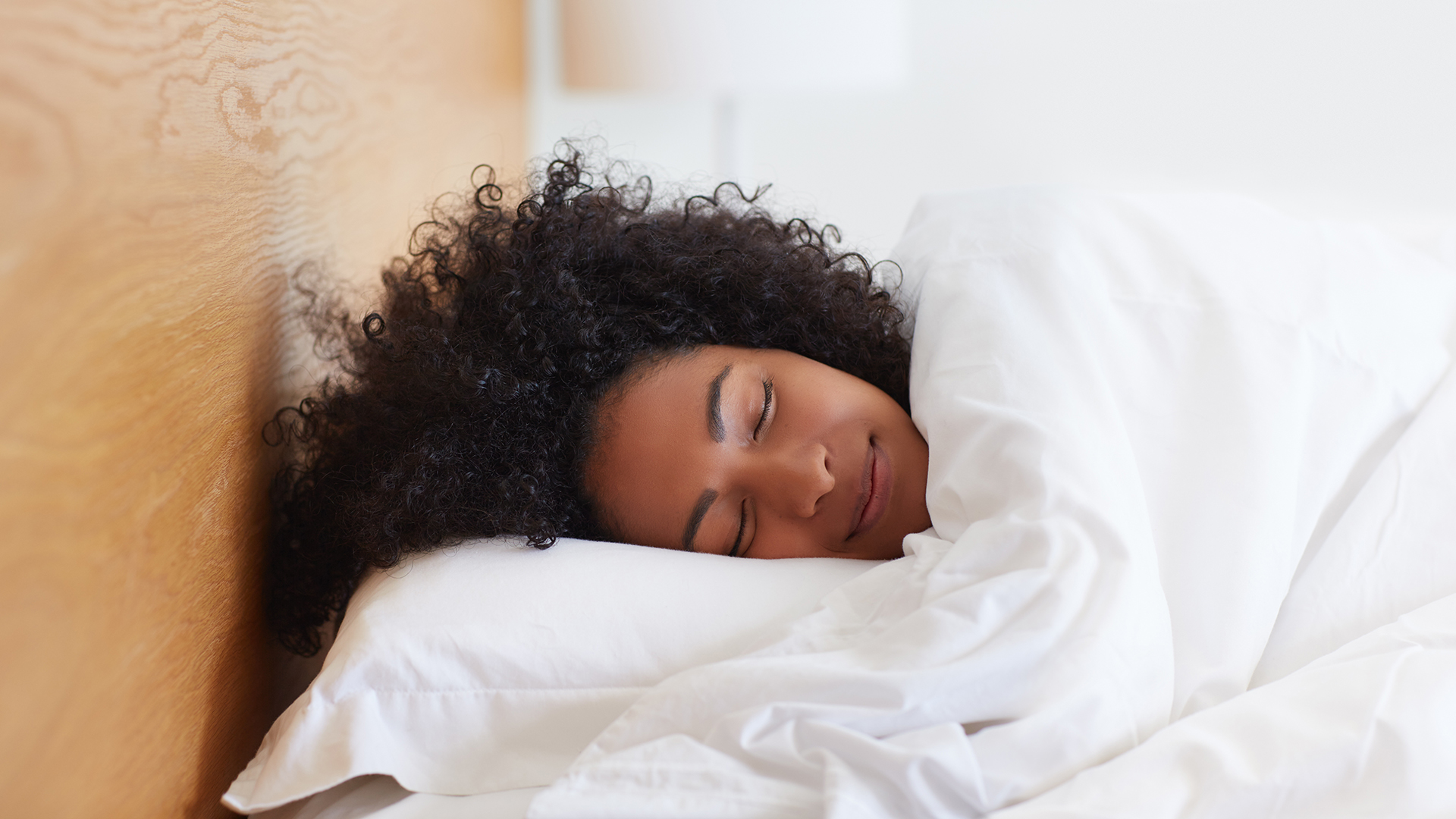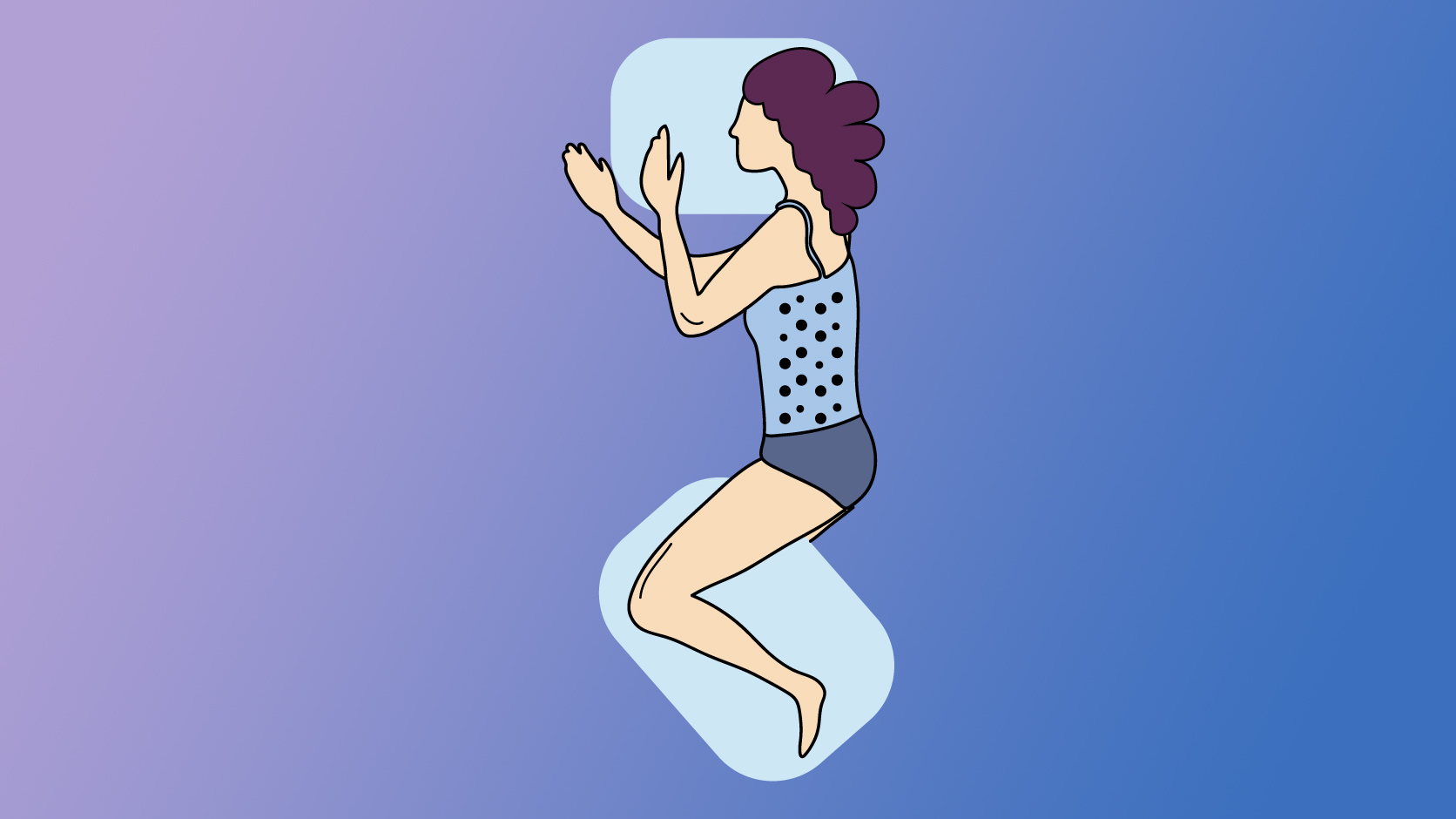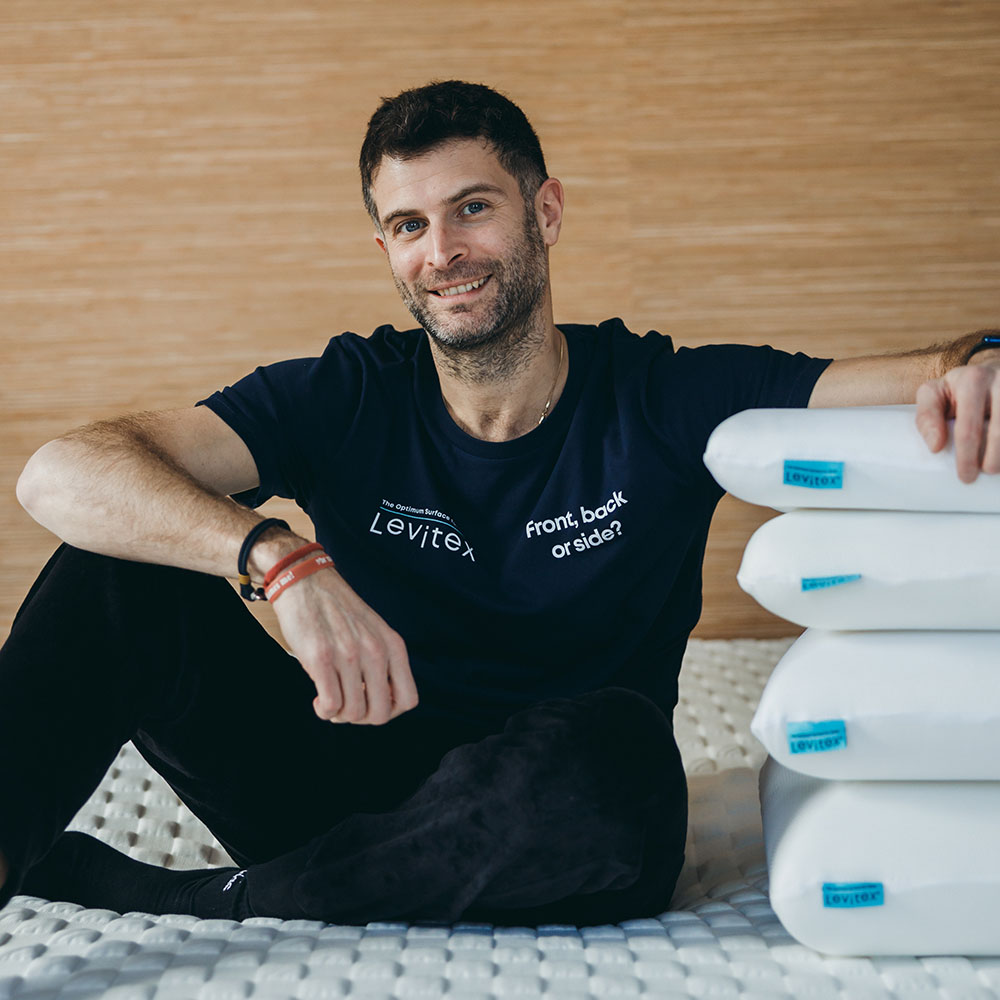How to choose the right pillow for better sleep: 3 expert tips
How upgrading your pillow can improve your sleep

We’ve all had those restless nights where it’s 3am and you’re trying fruitlessly to punch the pillow into shape. Times when no matter how much you plump, you can’t get the right position for your head. Getting a good pillow can be just as important as picking the best mattress, and it isn’t a simple matter of comfort.
Sleep posture expert James Leinhardt believes choosing the right pillow is essential to enjoying a restful, rejuvenating sleep. As James explains, with a bad pillow, the body can twist into all kinds of uncomfortable shapes in the night. “The second you fall asleep, it's like - imagine being a dead weight. So your head drops, it moves because it has no form, and [you move too]” James says.
The right pillow should fill the space between your ear and your shoulder blade (or scapula, if you want to get technical) when lying in a semi-fetal position. When lying on your back, a good pillow keeps your head in a neutral position, aligned with the shoulders and spine. If you sleep on your front, unfortunately there’s no pillow that can turn this into a good sleeping position. But a supportive pillow can help you switch to a better side sleeping posture. Here's 3 expert-backed tips for choosing the right pillow.
3 tips for finding the right pillow

1. Choose your height
To that end, it’s important to ensure your pillow is right for your height and build. As James points out; “if it's too big, you'll feel like sleeping on a step and you will hate it.” But too small isn’t any better. “Too low and your head will drop and you'll feel that pressure build up on the shoulder pretty quickly.” The Levitex pillow, created by James, is available in four sizes, so you can tailor the choice to suit you.
I had a chance to test the Levitex pillow – you can learn more with my Levitex Pillow review – and can confirm that the right size really does make a difference. Check out our best pillow guide for more options.
2. Consider the firmness level
It isn’t all about size. That super soft pillow might feel sumptuous when you get into bed, but during the night, it probably isn’t offering the support your head, neck, and spine need. “The softer your pillow, the less resistance, and gravity will pull [you] down into these really bad postures,” James explains. Pick something a little firmer, to better maintain good posture overnight.

3. Check your sleep posture
When testing your pillow, make sure to adopt the best position to sleep in. “Be mindful that if you've brought your shoulder forward the pillow will feel way too small,” James says. And keep in mind that the right pillow might not feel perfect right away. “The right size will feel really weird and alien,” James explains. “You won't hate it. You won't love it. If that's the feel, just bear with it for like a couple of nights.”
Get daily insight, inspiration and deals in your inbox
Sign up for breaking news, reviews, opinion, top tech deals, and more.
If you're a side sleeper, try to adopt the 'dreamer' position, shown in the illustration above. Back sleepers should aim to keep the body aligned when getting a feel for the pillow. As for front sleepers, try out both a side and back sleeping style, to see which one works best for you.

James Leinhardt has a wealth of knowledge in night time postural care and has designed class-one medical devices to manage the posture for clients suffering with complex neurological illness and injury. He works with NHS trusts and social care throughout the UK and his night time system has reached clients as far as the Middle East and Australia. He's also the founder of pillow and mattress brand Levitex.

Ruth is TechRadar’s Sleep Writer. She’s here to help you find the perfect sleep setup for your budget and personal preferences. As well as keeping a keen eye on everything that’s going on in the world of mattresses, she regularly speaks to experts to help you learn how to improve your sleep habits, whether that’s by debunking sleep myths or explaining the science behind it all. Prior to joining the TechRadar team, she wrote features and product guides for new parents hoping to get a decent night's sleep, as well as writing for a variety of online spaces.